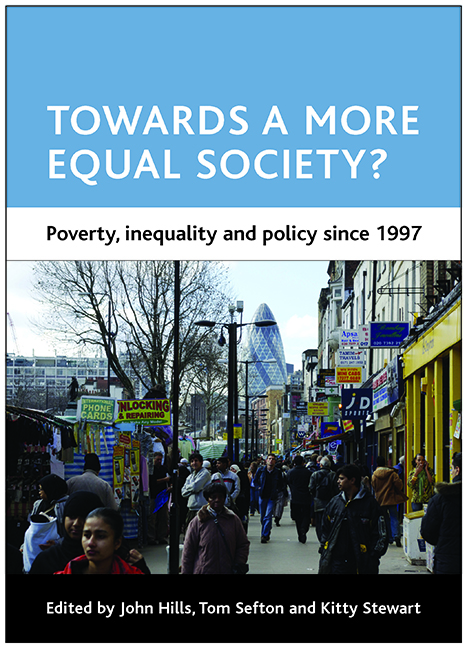nine - Ethnic inequalities: another 10 years of the same?
Published online by Cambridge University Press: 22 January 2022
Summary
Introduction
New Labour signalled its commitment to responding to racism in society early in its first term. By launching a public inquiry into the Metropolitan Police Service's investigation of Stephen Lawrence's racist murder and accepting its controversial findings (Macpherson, 1999), it appeared to send a powerful message after the ‘racism-blind’ years of the Conservative government. At the end of the 20th century, New Labour had recognised that ‘institutional racism’ was endemic to public institutions, such as the police, schools and government departments.
The government's policy response, outlined in the Home Secretary's Action Plan (Home Office, 1999), proposed a rigorous reform programme expressed through the language of racial equality of opportunity. At the centrepiece was the 2000 Race Relations (Amendment) Act, which places a statutory duty on all public authorities to promote equality of opportunity and good relations between different racial groups. Public authorities must audit, consult on, and monitor existing policies and services to assess whether these adversely impact different ethnic groups and publish a race equality scheme.
Aside from New Labour's legislative framework to produce racial equality, the prevention of social exclusion has been pivotal, with a focus on reducing multiple disadvantage for all groups (SEU, 2000c). This chapter will assess the effects of such policies – and those specifically targeted at minority ethnic groups – on longstanding ethnic inequalities in education, employment and income, and policing. It will conclude with an overall appraisal of New Labour strategies and consider where further policy developments are required. First, however, it is necessary to outline some relevant conceptual and methodological issues.
Conceptual and methodological issues
In reviewing various statistical and empirical material, this chapter relies wholly on the ethnic categorisations used by government, policy researchers and academics. Yet the ways in which ethnic group/origin is operationalised varies considerably across different datasets, and may often be remote from the self-identifications of those categorised or conceptualisations of ethnicity as understood by sociologists and anthropologists (see, for example, Fenton, 2003).
This has important ramifications when considering that the study of ethnic inequalities essentially involves examining between-group differences at an aggregate level, which largely assumes that there is little variation within groups.
- Type
- Chapter
- Information
- Towards a More Equal Society?Poverty, Inequality and Policy since 1997, pp. 179 - 200Publisher: Bristol University PressPrint publication year: 2009



